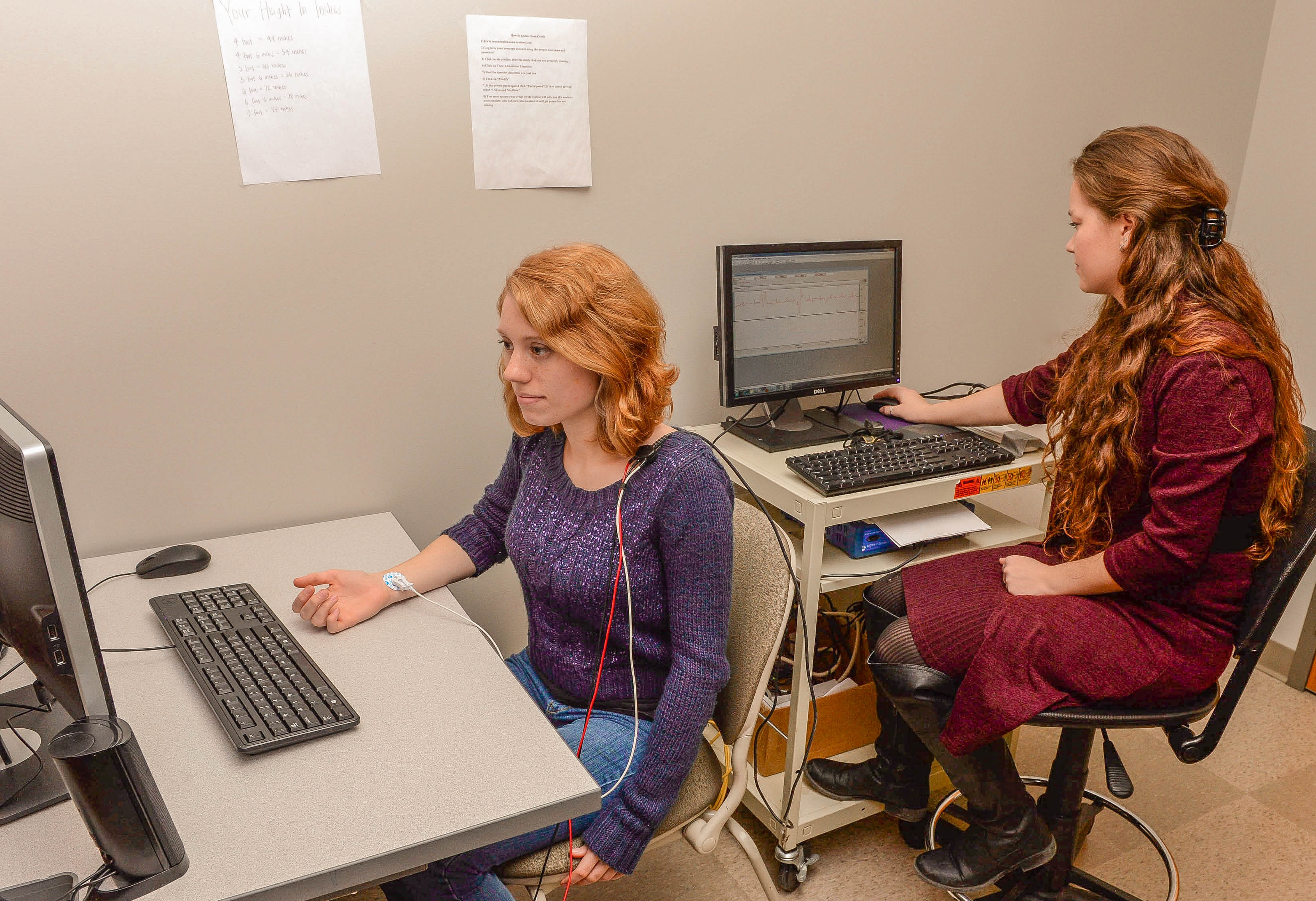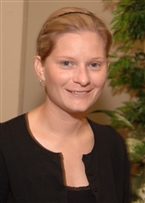Bachelor of Science in Psychology
The Bachelor of Science (BS) in psychology degree at the University of Mount Union introduces students to the broad and fascinating field of psychology and equips them for continued study in their chosen specialty.
While fulfilling the degree requirements for Mount Union’s bachelor’s degree program in psychology, students gain invaluable experience through basic psychological science courses, research experience courses, and numerous applied and clinical courses. Students can pair the Psychology major with any number of complementary disciplines for an education that meets their individual career goals. The program offers several other unique features, including:
- assisting Mount Union faculty with both human and animal-based laboratory research,
- hands-on learning opportunities through internships, including one with the Cleveland Clinic, student organizations, and service-learning;
- access to dedicated departmental facilities wired for audio and video recording for students and faculty to simulate real counseling offices and a full suite of cognitive and behavioral science laboratories, and
- a unique educational opportunity to get an in-depth, first-hand experience in autism advocacy with the Spectrum Education Center.
Courses in Psychology
Mount Union’s psychology curriculum consists of 44 disciplinary credit hours out of a total of 120 hours, which also includes the University’s requirements for its general education program, the Integrative Core. The entire psychology curriculum can be found below.
Featured Courses
Professional Development in Psychology, Neuroscience, and Human Development
This course is designed to acquaint students with the range of career possibilities that exist for them after graduation. It includes practical training in two important areas of professional development: writing and ethics. Students explore their interests across the field of psychology and develop a comprehensive plan for their undergraduate careers. They are provided with an introduction to writing in psychology consistent with the requirements of the American Psychological Association. In addition, students are introduced to ethics in educational, research, and applied settings as related to psychology.
Abnormal Psychology
Abnormal Psychology is largely concerned with the nature, origin, and treatment of mental illness. This course offers the student a comprehensive overview of the field, focusing on the biological, psychological, relational, and social components of mental disorders. A historical and contemporary exploration of mental illnesses offers the student a broad overview of the field, while a cross-cultural examination of disorders offers students insight into how mental illness is viewed from various perspectives.
Careers in Psychology
Depending on a student’s individual career goals and plans for further study, many lucrative and rewarding job opportunities exist in the field of psychology.
Possible job titles in psychology include:
- Substance Abuse Counselor
- Psychiatric Technician
- Clinical Psychologist
- School Counselor
- Psychiatrist
According to the Bureau of Labor Statistics, employment of psychologists is projected to grow 14 percent through 2026, faster than the average for all occupations.
Learn More About the Bachelor of Science in Psychology
There are endless possibilities in the field of psychology, and a bachelor’s degree is the perfect foundation for a successful career in the field. Find out how Mount Union can get you on the right path using the buttons below.
-
Admission
Admission
Admission requirements for first-time college students include:
- First-Year Student Application for Admission
- Application essay
- Official high school transcript
- Official college transcript(s) (if applicable)
- Official ACT/SAT score
Please visit our Admission Page for admission requirements and application instructions for transfer, international, and graduate students.
-
Curriculum
BS in Psychology Curriculum
Required Courses
PSY 110S: The Psychological Sciences
PSY 120: Professional Development in Psychology
PSY 200: Research Methods and Data Analysis I
PSY 205: Research Methods and Data Analysis II
PSY 400: Senior Research I
PSY 405: Senior Research II
PSY 420: The Origins of Psychology
or
PSY 499: Psychology Internship 4-16
or
SPE 499: Spectrum Education Center Internship
Any One of the Following Developmental/Social Courses (4 hours)
PSY 210: Educational Psychology
PSY 215: Child and Adolescent Development
PSY 220: Adulthood and Aging
PSY 225: Lifespan Development
PSY 230: Personality Theory
PSY 235: Social Psychology
PSY 300: Movies & Madness
PSY 380G: Psychology of Gender
PSY 385G: Psychology of Prejudice & Power
Any One of the Following Cognitive/Behavioral Psychology or Neuroscience Courses
PSY 245: Learning and Conditioning
PSY 250: Neuroscience: The Brain
PSY 260V: Sensation and Perception
PSY 270: Cognitive Psychology
PSY 320: Neuroscience: Behavior and Psychiatric Disorders
PSY 330: Drugs & Behavior
PSY 340: Animal Cognition
PSY 410: Cultural Health Psychology
Any One of the Following Applied Psychology Courses
PSY 240: Abnormal Psychology
PSY 255: Sport Psychology
PSY 290: Introduction to Autism Spectrum Disorders
PSY 305: Psychology of Humor
PSY 310: Child and Adolescent Psychopathology
PSY 345: Human Sexual Behavior
PSY 350: Social Responsibility and Personal Well-Being
PSY 360: Introduction to Counseling
PSY 390: Introduction to Marriage and Family Therapy
- Eight additional PSY or SPE credits (4 credits must be at 300-400 level)
-
Accreditation
BS in Psychology Program Accreditation Status
Mount Union’s degree programs are all fully accredited. Find out more about accreditation.








